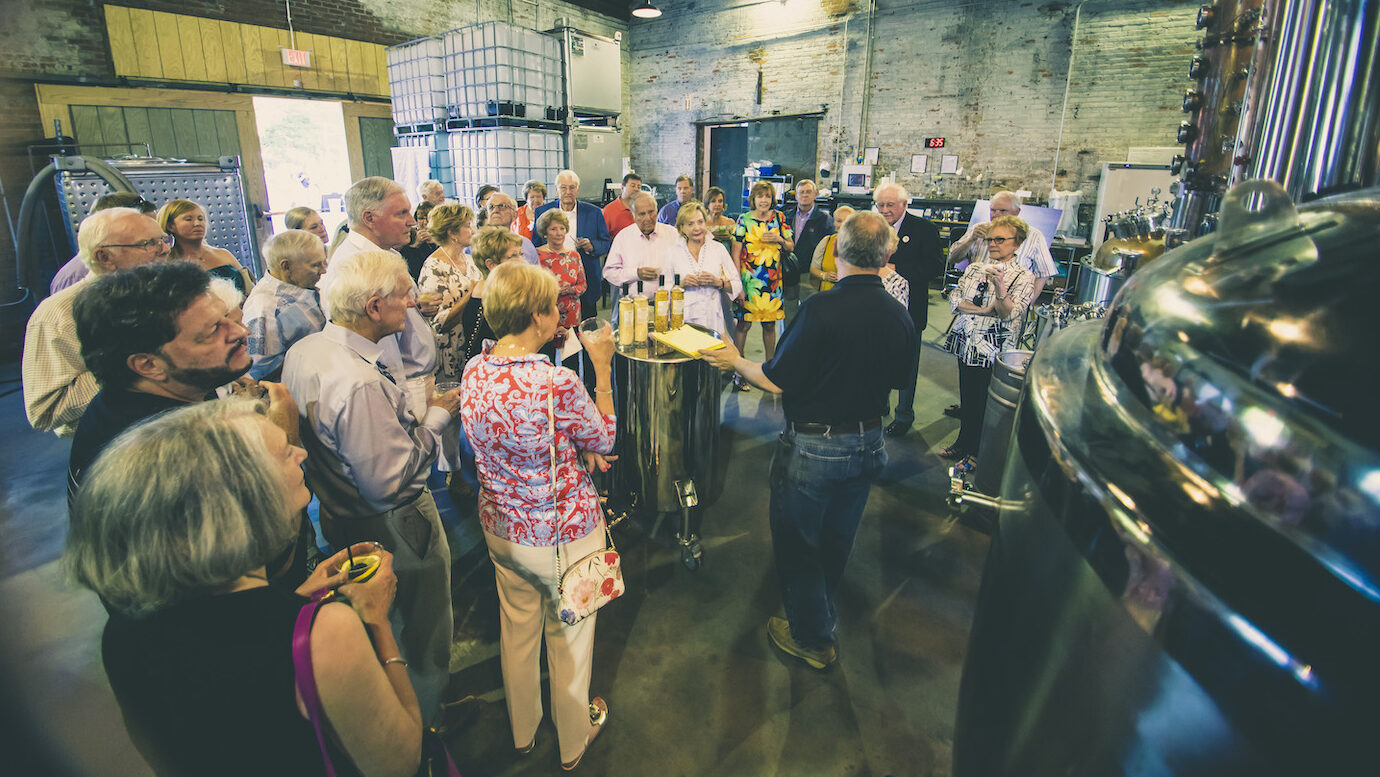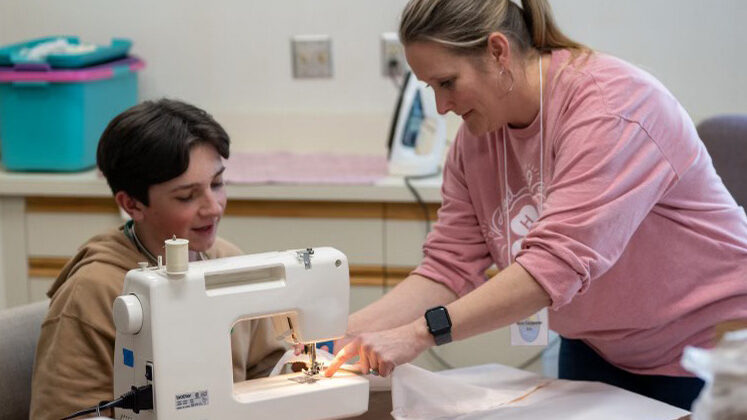Community Spirits
You’ve heard the phrase, “it takes a village.” When it comes to Social House Vodka’s step into agritourism, it takes a village, a farmer, an entrepreneur and a gaggle of NC State researchers.
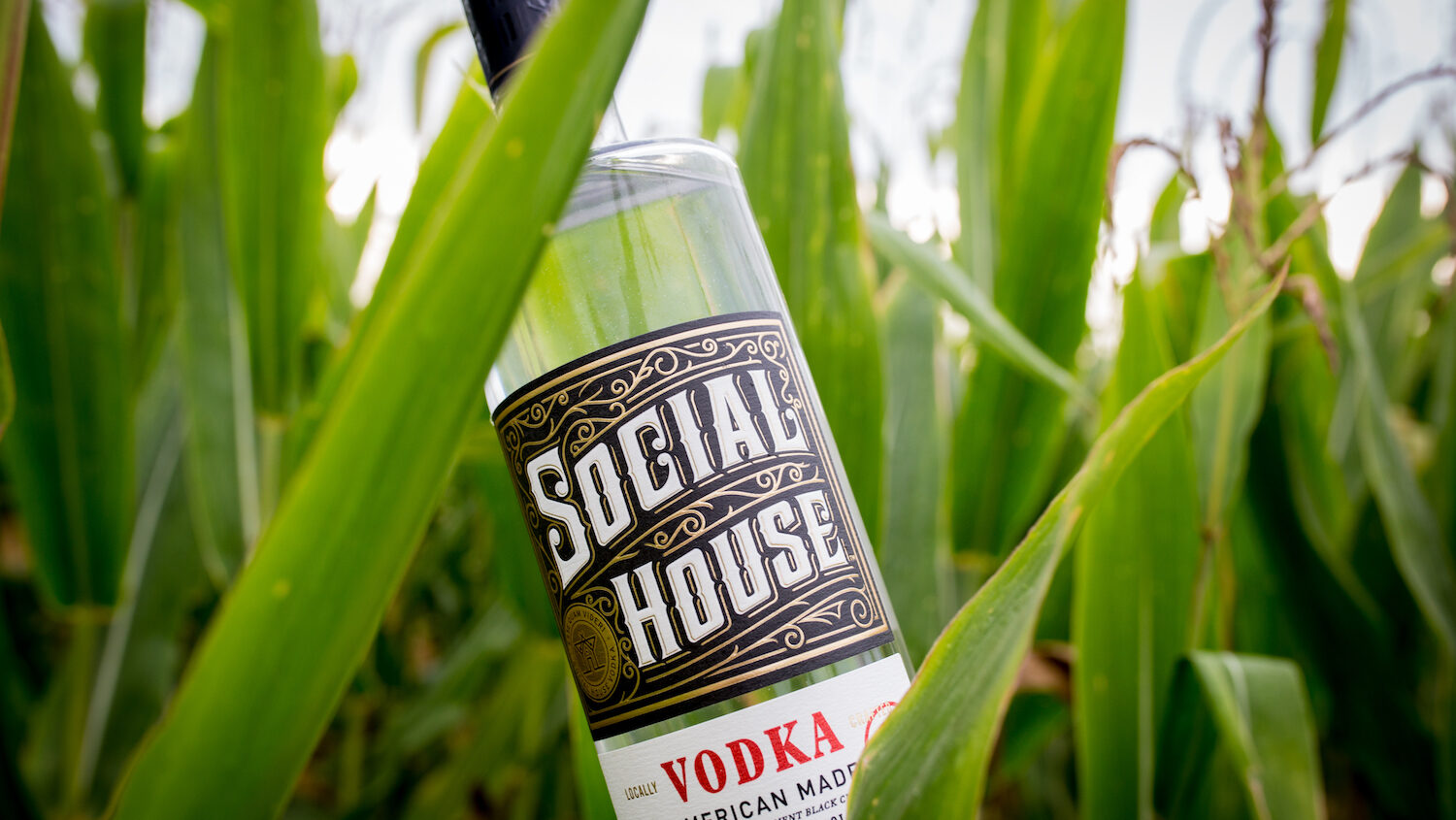
Social House became North Carolina’s No. 1-selling craft vodka four of its six years in production. Its distillery became the latest agritourism destination in rural Kinston.
Social House Vodka is distinct for a few reasons. First, it’s distilled from corn grown only 20 miles from its distillery. Second, its water comes from a million-gallon reservoir filled by three deep water wells to the Black Creek Aquifer, which runs under the sandy, fertile soil in eastern North Carolina. Social House’s smooth sweet, peppery taste has made it a popular craft spirits choice within the state. But success didn’t happen overnight.
CALS Researchers Inform Recipe and Process
“We were very fortunate to work with NC State,” says Cary Joshi, founder and president of Social House Vodka. “First we started with MaryAnne Drake’s team in the Food, Bioprocessing and Nutrition Sciences department to understand what elements in vodka’s chemistry make it taste the way it does.”
Drake’s team tested 24 different brands of vodka via gas chromatography mass spectrometry, a research method that identifies substances in a liquid sample.
“Her team helped us analyze various vodkas and interpret how the results affect the various taste profiles,” says Joshi. “With their help, we came to understand what makes one vodka good, what makes one smooth, what makes the texture different, and so on.”
“Small businesses lift up America. We connect with and work with our community. It’s good for everybody.”
Next, Joshi and his team turned to Wayne Yuan and Ying Liu in the Department of Biological and Agricultural Engineering to pick the perfect corn for their product.
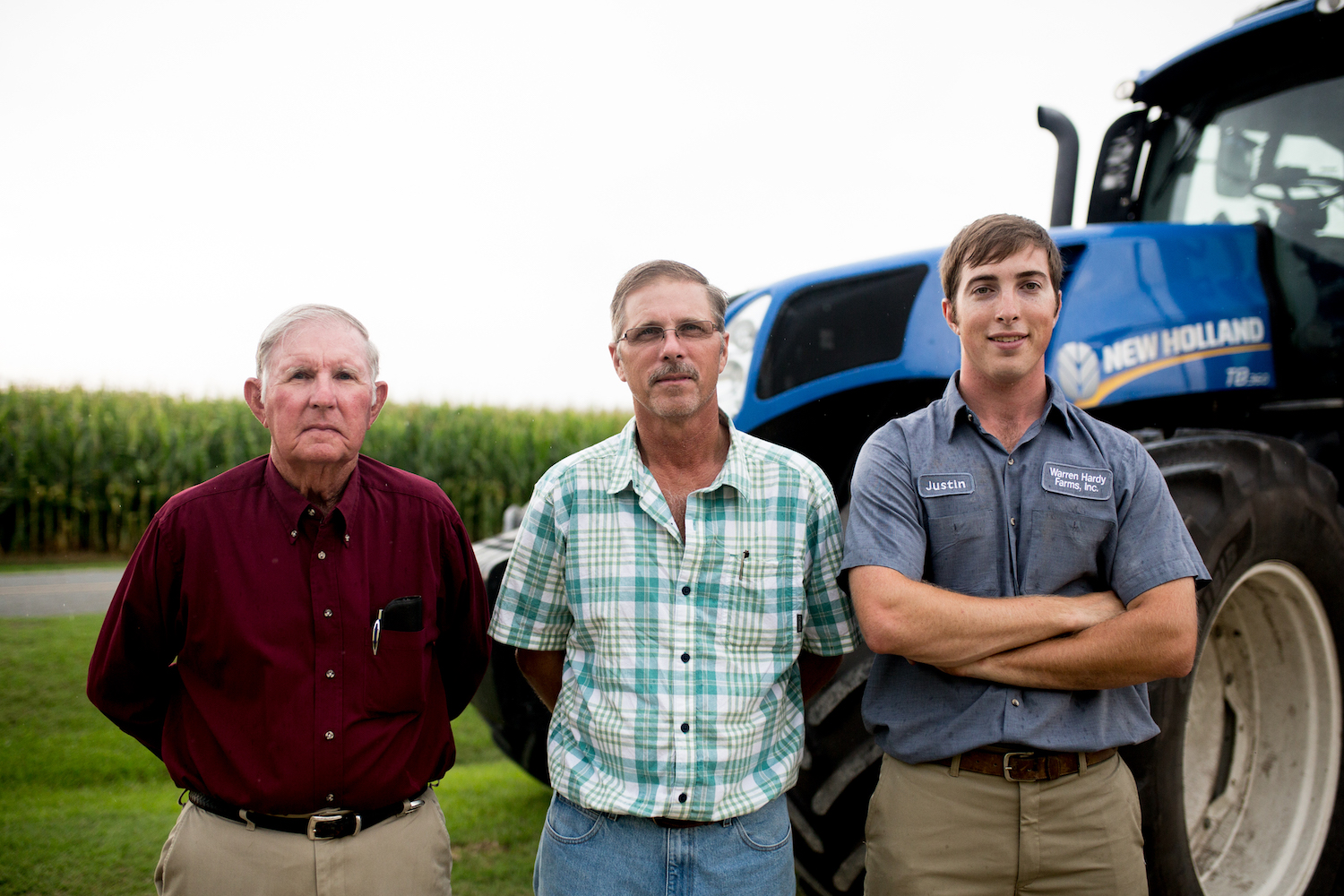
“Their team assisted us in the evaluation of starch content in different strains of corn to select the specific strain that would give us the taste that we wanted,” Joshi says. That corn is grown by Warren Hardy Farms in Seven Springs, North Carolina, a 20-minute drive from the distillery.
Next, the Social House team turned to NC State bioprocessing engineer John Sheppard, an expert in food and beverage fermentations. Sheppard helped Joshi develop operating procedures for brewing corn mash, yeast propagation and fermentation.
A Small and Mighty Community
Social House chose eastern North Carolina as its home base. Kinston is the birthplace of Mother Earth Brewing, a craft brewery, and Chef and the Farmer, Vivian Howard’s farm-to-table restaurant that put the city on the culinary map. Kinston’s agrarian economy was once driven by cotton and tobacco but has reinvented itself around local food and the arts.
“When we were looking for a place to set up, we came to Kinston and met with local business owners. The farm-to-table movement was booming,” Joshi says. “We met with Wilbur King from King’s Barbecue and Stephen Hill, who started Mother Earth Brewing and was behind the revitalization of downtown Kinston—we wanted to be a part of this town’s renaissance. The community was committed to bringing the town back and making it a destination through the culinary and visual arts.”
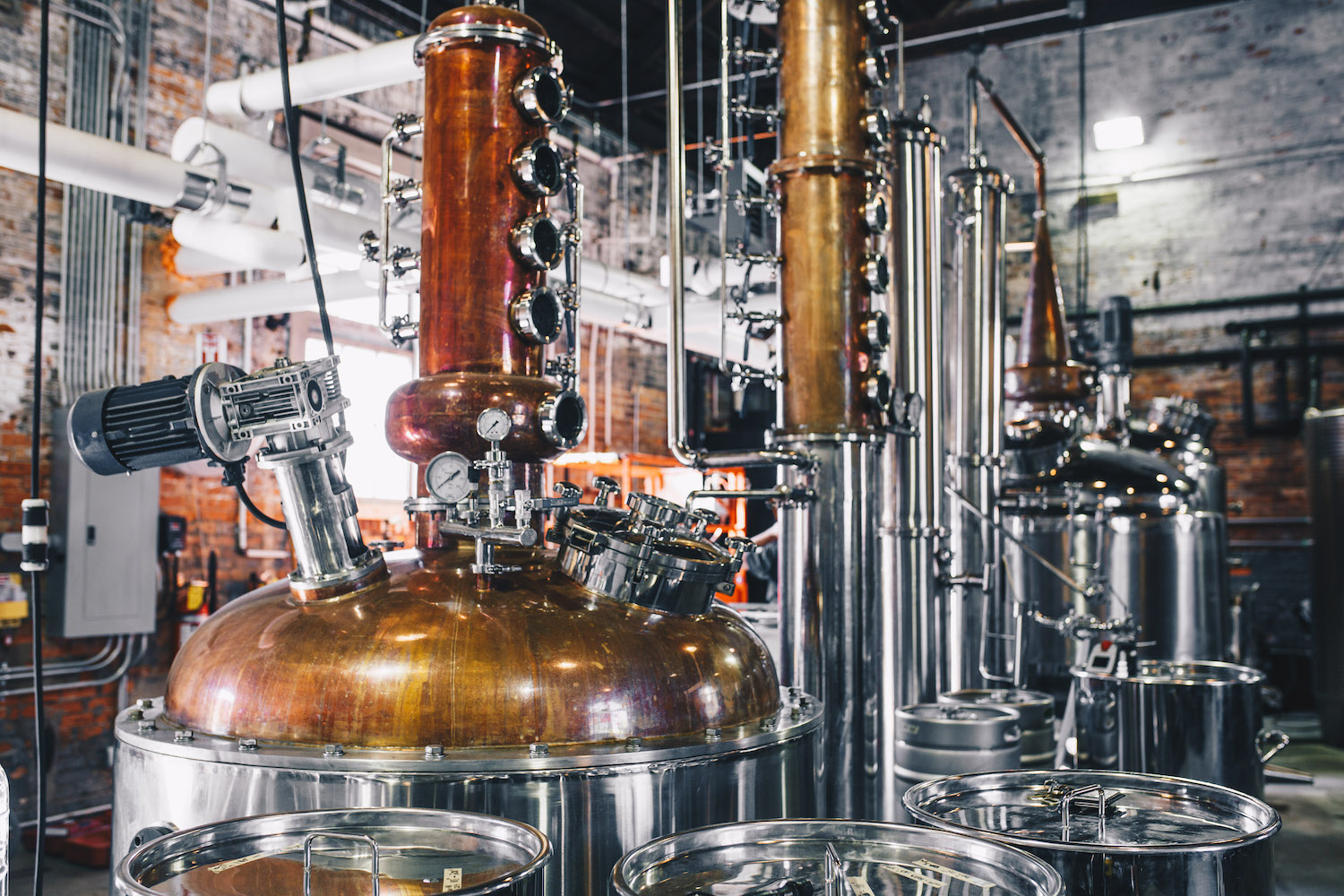
They set up the distillery in a former power plant on the banks of the Neuse River. After launching the vodka and the brand, they opened The Pumphouse 1906, a speakeasy cocktail bar and tasting room where folks could gather socially or enjoy themselves after a distillery tour.
“Being able to show folks how it’s made also helps create a deeper connection to the brand,” Joshi says.
Hyperlocal Agritourism Success
The team takes care to keep Social House Vodka hyperlocal, sourcing boxes from Bethel, labels from Salisbury, and botanicals and fruits from local farmers.
“Small businesses lift up America,” Joshi says. “We connect with and work with our community. It’s good for everybody.”
Next, Social House plans to release new spirits: two whiskeys, a gin and a limoncello. In addition, they partnered with Harvest Host to allow RV campers to stay on the distillery land for free. Another Kinston farm is offering a glamping option, and the retro, revitalized Mother Earth Motor Lodge downtown offers visitors another place to spend the night and extend their stay.
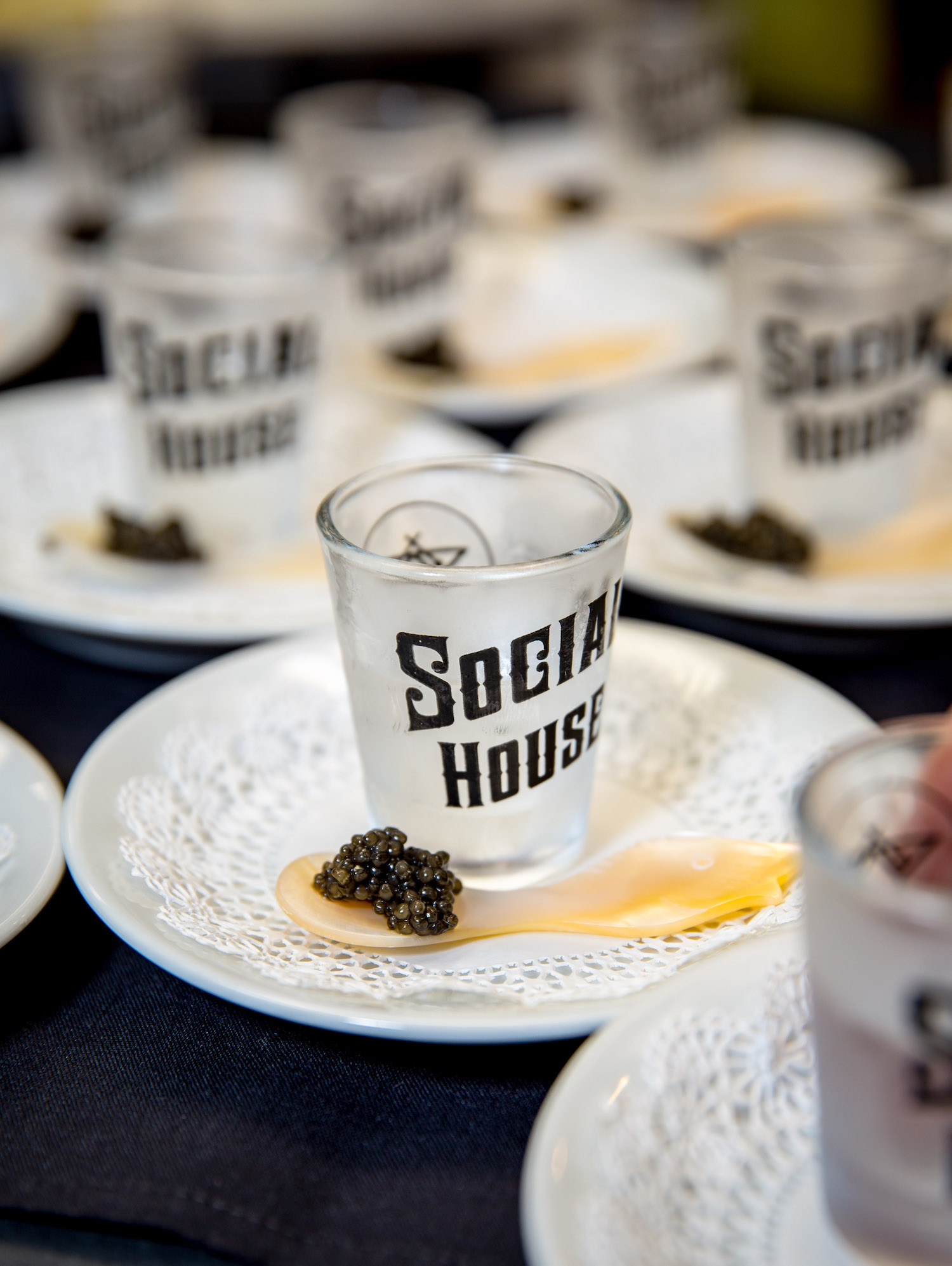
“We created Social House to encourage our customers to spend time with and create moments with friends and family,” Joshi says. “Now we draw bookings from all over the country. They come to Kinston, visit our tasting room and take a bottle back to wherever they are staying.”
Social House has proven that advanced agritourism with a niche, authentic offering can succeed not only for its business, but also for farmers who supply the produce, the local economy and consumers looking for a memorable experience.
- Categories:
